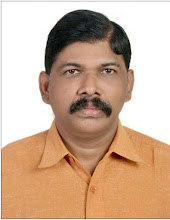Sudhir Kumar E S
On September 17, 2025, Narendra Modi, the Prime Minister of India, celebrated his 75th birthday, marking a significant milestone in a journey that has not only transformed him but also the nation he leads. His journey from a humble background to becoming one of the most influential leaders in the world is truly remarkable. From his early days in the Rashtriya Swayamsevak Sangh (RSS) to becoming the Chief Minister of Gujarat and ultimately the Prime Minister of India, Modi has consistently embodied the spirit of Hindutva—seeking to position India as a global power culturally, economically, and militarily.
Early Life and a Legacy of Service
in the RSS
Narendra Modi was born on September
17, 1950, in Vadnagar, Gujarat. He grew up in a poor family and learned the
values of hard work and service from a young age. His great journey began with
the Rashtriya Swayamsevak Sangh (RSS), a Hindu nationalist organization.
Through the RSS, Modi developed a strong sense of Hindutva, which emphasizes
the importance of Indian culture and heritage. His upbringing instilled in him
an unwavering commitment to serve the nation and its people.
Leadership in the BJP
Modi's political career took off
when he joined the Bharatiya Janata Party (BJP). He quickly rose through the
ranks due to his dedication and leadership skills. As the Chief Minister of
Gujarat from 2001 to 2014, he implemented various policies that led to significant
economic growth and development in the state. His focus on infrastructure,
education, and healthcare transformed Gujarat into a model for other states.
Throughout his tenure in the
Bharatiya Janata Party (BJP), Modi has championed the cause of nationalism,
seeking not only to espouse the values of Hindu culture but also to unify the
diverse tapestry that is India.
His vision was put into practice
during his tenure as the Chief Minister of Gujarat, where he ushered in a new
era of development. Through innovative policies and a focus on economic growth,
Modi transformed Gujarat into a model state, attracting national and
international attention. His success in Gujarat laid the foundation for his
ascent to the Prime Minister's office in 2014, where he has further acted on
his vision for a strong, self-reliant India.
A Statesman with a Global Vision

Under his leadership, initiatives
like "Make in India," "Digital India," and
"Atmanirbhar Bharat" have garnered substantial national support,
reflecting Modi's focus on economic self-sufficiency and technological
advancement. The aim to create a militarily strong India underlines his
commitment to ensuring national security and sovereignty.
Cultural and Economic Development
Modi believes in the importance of
cultural pride and economic growth. He has worked to promote Indian traditions
and values while also encouraging foreign investment. His government has
focused on improving infrastructure, creating jobs, and enhancing the quality
of life for all Indians.
Contrast with Opposition Leaders
In stark contrast stands Rahul Gandhi, leader of the Indian National Congress. Over the years, he has been perceived by many as an inadequate alternative in these challenging political times. Critiques of Rahul often revolve around his privileged upbringing and alleged disconnect from the real issues facing the common man. Accusations implicate him in associations with various anti-India elements, casting shadows over his credibility.
Rahul’s leadership has faced
scrutiny due to perceived irresponsibility and questionable affiliations,
raising concerns about his ability to represent a nation as vast and diverse as
India. Allegations of involvement with international agents and the narcotics
underworld paint a troubling picture, further compounded by a lack of coherent
policy vision that has left many dissatisfied with the Congress leadership.
While Modi is seen as a selfless
leader dedicated to the welfare of the nation, some perceive Rahul as
irresponsible and disconnected from the realities faced by ordinary citizens.
This comparison highlights the differing approaches to leadership and
governance in India today.
Modi's Recognition on the Global Stage
For his tireless dedication, Modi has received more than 25 prestigious awards from various countries, symbolizing not just India’s appreciation but also global recognition of his leadership. Esteemed world leaders respect and heed his opinions, further cementing his position as an influential figure in contemporary geopolitics.
While the future of India continues
to hold uncertainties, the commitment displayed by Narendra Modi remains a
beacon of hope for millions. His selfless service to the country, combined with
a strong ethical framework and accountability to the people, distinguishes him
from his political contemporaries.
Conclusion: The Future of Bharat
As Narendra Modi turns 75, his
journey is far from over. His relentless drive for progress serves as
inspiration for aspiring leaders and citizens alike. Committed to the idea of a
prosperous and independent Bharat, Modi envisions a nation that not only leads
in economic and military prowess but also stands as a cultural exemplar for the
world.

























.jpeg)









0 comments:
Post a Comment